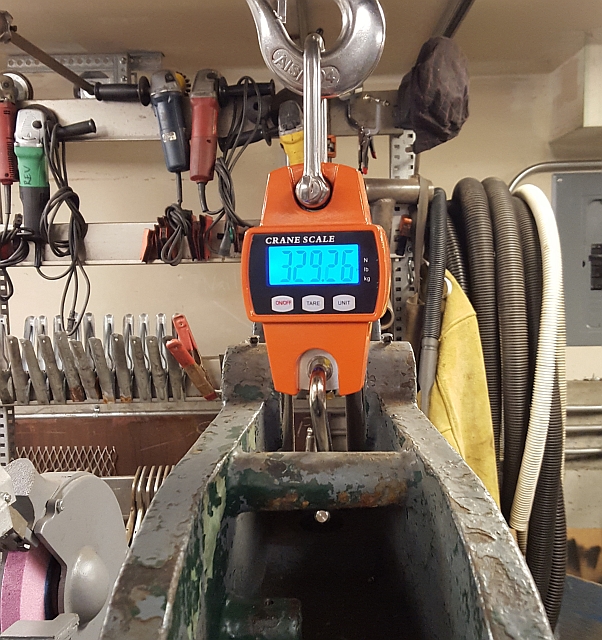When I was ready to move 400 miles in 1988, I bought a road-tractor and several old semi-trailers, to use for storage on the other end as well as transport. First load went in a single-axle aluminum 32-footer from the 1940's...empty drums and tanks of various sorts , chicken nest boxes, some lumber, canning jars, sinks, insulation panels, vee belts..light stuff. A good test run, went well. Second load in a Dayton wheel tandem-axle 34-footer, Steel factory windows, unglazed, stacked flat and filled with bricks. Boxes of bolts and pipe-fittings. Hydraulic cylinders and pumps. Coils of wire. Grinding stones. Hammers. Iron stove parts, motors, sheaves, copper cable and switches, a 35 KW genset. I knew weight was important, I was registered for 80,000lb, so I carefully estimated the weight of each bit and kept a manifest. Set off down the road. Cripes, is my truck dying? What happened to the power? Gotta air up those tires, they look soft...but already have 100 PSI in them. I do not think I managed to stay in any gear for over 30 seconds on the whole trip. Every hundred miles or so i stopped for a walk-around and found wheel bolts broken and replaced them. The trip usually took 10 hours...this one took 22 hours. Regular fuel mileage 6 MPG, this trip 4.25. Finally got to my destination, set off up the first and steepest hill at 2250 RPM (on the governor) in Gear Number One of Fifteen, crested the hill at 1100 RPM, about to stall. Some calculations I did in my head to while away those long, sloloooow hill-climbs, based on horsepower and elevation suggested that I was grossing WAY over 100,000 lb. For the next load, I got a scale. My estimating was about 50% low on average. Get a scale. Antique platform scales are not hard to find at auctions, junk stores, cheap. They are nothing but a bunch of levers. A little cobweb-removal and oil usually gets one working..if it is accurate within 20% that will still keep you out of the trouble I got myself into. If your scale only will weigh 100 lb, put one end of a heavy plank on its platform and the other on a cinderblock,and place your load 10/11ths of the way from the scale to the cinderblock, and multiply your reading by 10. Or put a pressure gage on a tee at the base of the lift cylinder on your engine hoist, and do a little arithmetic. Get a scale.



